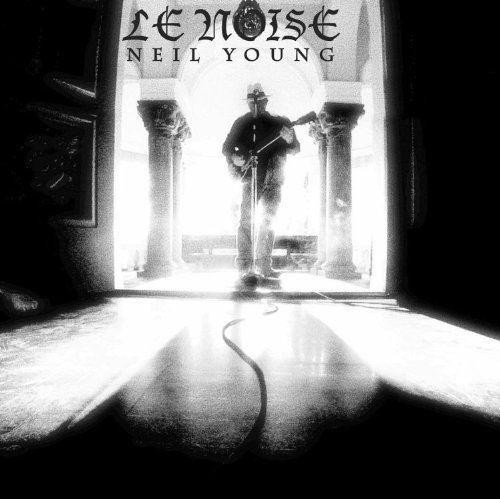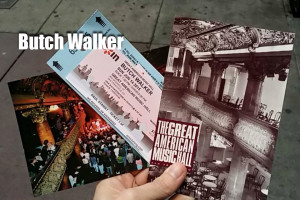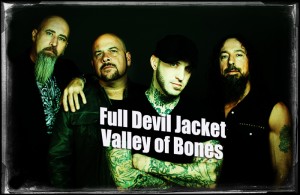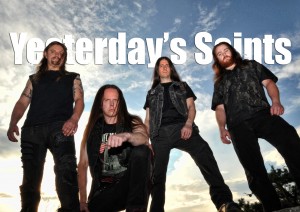Neil Young – Le Noise
3 min read
 Incredibly bold, challenging, uneven, cool and one hundred percent interesting – this is Neil Young’s newest work, Le Noise. By now, you may have heard a little something about how different it is, how spare. Well, it is an experimental album if ever there was one. There is no band per-se, so we’re talking just Neil, his (mostly electric) guitar, and a lot of post work. Now, if you don’t dig Young’s iconic thin, perpetually breaking voice, and an album of nothing but it and a guitar sounds like the stuff of nightmares, don’t worry – his voice rarely pierces prominently through the haze of effect and guitar distortion. It’s there – but it is treated as just another part of the wall of sound.
Incredibly bold, challenging, uneven, cool and one hundred percent interesting – this is Neil Young’s newest work, Le Noise. By now, you may have heard a little something about how different it is, how spare. Well, it is an experimental album if ever there was one. There is no band per-se, so we’re talking just Neil, his (mostly electric) guitar, and a lot of post work. Now, if you don’t dig Young’s iconic thin, perpetually breaking voice, and an album of nothing but it and a guitar sounds like the stuff of nightmares, don’t worry – his voice rarely pierces prominently through the haze of effect and guitar distortion. It’s there – but it is treated as just another part of the wall of sound.
In fact, there is so much distortion – especially on the insistent deep chop of the damn fine “Angry World” – that it might be said that Young is playing the amp, not the guitar. And I dig it. Le Noise plows through its tracks with the heavy momentum of a train barreling past that ranch Young loves so much. The first spin flew by in what seemed like no time at all. It slows only for its two acoustic cuts, “Love and War” and “Peaceful Valley Boulevard.” The latter is a classic (and beautiful) Neil Young anti-colonial lamentation that tells the story of westward expansion and turns into a contemporary political call for action. “Peaceful Valley” is a good example of the paradox that is Young: it shows that he is, no doubt, still a brilliantly shining beacon of protest music, yet also reminds me that he is, in many ways, still an uneven lyricist. Lines like “God cried tears that fell like rain” sound like a freshman creative writing assignment material…but I expect that from Young; in part because it’s balanced by less obvious lines, but also because it’s his simple earnestness that makes him who he is. You listen to Neil Young looking for a clear voice to tell the truth without pretentiousness; if you want complexity, pretense, and obfuscation, look under “D” for Dylan. Bob, that is.
The final track, “Rumblin’,” seems illustrative of the album as a whole. There are parts that I absolutely loved (at twenty-five seconds in, the distorted chords chug, chug chug deeply to the words “I can feeling the rumblin’ in the ground” and had my heart thudding) and parts that seem directionless (as when, halfway through, the song can’t seem to decide what kind of song it’s going to be). Having just now given “Le Noise” another spin, I must say it grows on you. Young, and producer Daniel Lanois, gave themselves a lot of room to play, which could have meant greatness or possibly indulgent crap, yet what has emerged is largely a success – and a bit avant-garde. “Le Noise” is somewhere better than good, and is certainly always one hundred percent fascinating and compelling.






